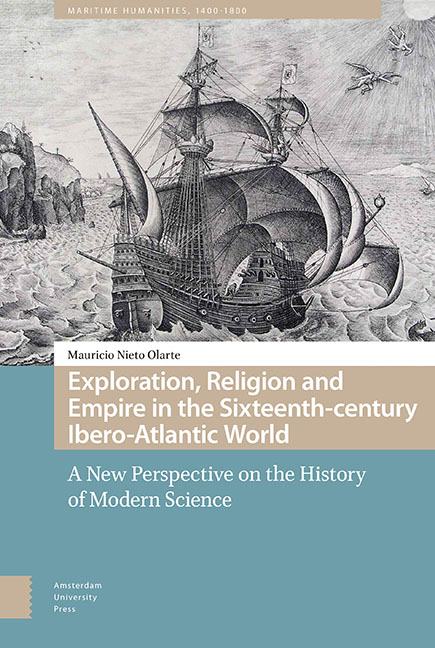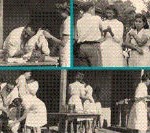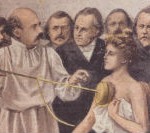In a pre-pandemic paper, Drayton and Motadel discussed the impacts that the combined election of Trump and the Brexit referendum could cause on globalization and Global History research. While both events had certainly a negative outcome for the former – at least for a western-centred globalization process – the same could not necessarily be true regarding the latter. Certainly, they created material difficulties for historical research, dimmed some of the intellectual conditions for thinking beyond national frameworks, and represented a halt to a no-border society that partly explains the emergence of Global History in the 1990s.
Nonetheless, both events also showed the importance of global reflections, since they manifested a certain malaise regarding liberal democracy that must be understood as a global phenomenon and exposed that thinking (critically) global would be central to challenging Trump and Brexit rhetoric. In similar terms, the Covid-19 pandemic represented a serious blow to globalization and reflections on Global History. It closed archives, recreated borders, for instance within the Schengen space, and reinforced nationalistic discourses and practices about science – the clash between the UK and EU around the AstraZeneca vaccine, which echoed Brexit’s harsh negotiations, is a good example. Nonetheless, as recently remarked by David and Singaravélou, the pandemic is likewise one of the most global events in the history of humanity, which enabled every human being to experience the effects of globalization, although not in the same way.
But that is not necessarily a new conclusion, and as discussed by different historians since the 1970s, pandemics are per excellence global conjunctures. In these previous studies, a certain centrality was given to the globalization of the pathogens, but the Covid-19 pandemic has also shown that those were also conjunctures enabling the circulation and construction of new knowledge on a global scale. I believe this assumption could help rethink pandemics from a global history of science perspective.
You are working on an international project “The Global War Against the Rat and the Epistemic Emergence of Zoonosis”. How is this project? What are the main issues?
Led by Professor Christos Lynteris, the project is funded by the Wellcome Trust and is based at the University of St Andrews, UK. Its main research question seeks to understand how the war against rats played a role in the emergence of at least three central concepts to zoonotic reasoning in the twentieth century: reservoirs, species invasiveness, and epizootics. This war started at the end of the nineteenth century to face the Third Plague Pandemic (1894-1959) but included other diseases, such as leptospirosis and murine typhus, and was driven by economic reasons as well, namely food destruction caused by rats.
To understand these innovations in zoonotic reasoning, the project splits into three “fronts” of this war: a) it examines the techniques employed to kill rats and wild rodents, such as direct hunting, fumigation and poisoning; b) it studies architectural innovations to avoid the contact between these animals and humans (known as rat-proofing practices); c) it investigates the epistemological production at several microbiological laboratories made possible thanks to the knowledge gathered over those sanitary actions. The project develops these three work packages through archival research in India, South Africa, the US, Argentina, and Brazil. In sum, the project’s main interests and methodologies lay at the intersection of Global History, History of Science and Medicine, and Animal Studies, which can provide a rich historical analysis of the emergence of zoonosis that became pandemics.
Could you talk a little about your current research and publications?

The last article Matheus Duarte published in HCS-Manguinhos, From Bombay to Rio de Janeiro: the circulation of knowledge and the establishment of the Manguinhos laboratory, 1894-1902 (HCSM vol.25 no.3 jul./set. 2018) examines the circulation of knowledge and international disputes surrounding vaccines.
Within the project, I am particularly interested in two distinct but at times convergent points of the war against the rat. On the one hand, I am enquiring about the role of supranational health agencies, namely the Office International d’Hygiène Publique (OIHP), in “constructing” domestic rats as a universal object that needed to be controlled on a global scale. In other words, I am researching how the rat became an agent that fostered international collaboration. On the other hand, I am studying the invention, circulation, and transformation of a series of concepts that aimed to describe plague being “conserved” in landscapes other than ports and cities.
The most important and longstanding of these concepts was that of the “sylvatic plague”, created in 1927 by the Portuguese doctor Ricardo Jorge after a survey organized by the OIHP. With this idea, Jorge aimed to describe plague infection among wild rodents living in what he called desertic or steppe-like environments. Surprisingly, we have until now little historical work on the craft of this concept, and on its imperial and scientific backgrounds, despite the current presence of the sylvatic plague in several parts of the world, and its epistemological connection with related diseases, such as sylvatic yellow fever. To understand the emergence of the sylvatic plague as a new entity, I am then working in two directions.
Firstly, I am writing a history of the invention of the concept using Jorge’s archives, held at the Portuguese National Library in Lisbon, and OIHP documents found in several archives. This research will shortly be published in a special issue on disease reservoirs. Secondly, I discussed the general idea of emerging or reframed diseases as both an ontological and epistemological problem in an essay co-authored with my project’s colleague Jules Skotnes-Brown, which will soon appear at IsisCb Pandemics Special Issue (the essay, as well as the innovative evaluation process of the special issue, can be accessed here.
Along with these more global studies, I am also focusing on the fight against rats as well as debates on plague landscapes in Brazil. Both questions are particularly represented by the works of the Serviço Nacional de Peste (SNP) (1941-1956), whose institutional trajectory was recently examined by Simone Luna in a breakthrough Master’s dissertation defended at Casa de Oswaldo Cruz. The Service acted especially in the North-East countryside, leading rat-catching and rat-proofing actions, but also investigating the role of a plethora of local wild rodents, such as mocós, preás, punarés, and cotias, in conserving and spreading the plague.
The members of the service were then central in inventing new categories to describe the context they were acting upon – crafting concepts like “rural plague” and “rural campestre plague,” among others – and in transforming former ideas, such as that of sylvatic plague, which in Brazil began to describe a potential plague infection among rodents living in rainforests rather than in steppe-like environments. Along with written documentation, SNP’s main archive consists of a collection of almost 60.000 wild rodents caught in the North-East from 1951 to 1955 and held at Museu Nacional, which luckily survived the fire that partly destroyed the institution in 2018. I am very grateful to Professor João Alves de Oliveira for opening the collection and sharing unpublished sources with me. Thanks to this and other materials, Simone Luna and I are currently writing a paper on the history of plague in Brazil from 1900 to 1955, exploring Brazilian real and imagined plague landscapes, from the ports at the time of Oswaldo Cruz to the Amazon in the 1950s.
Moreover, starting in August 2022, I will be a visiting fellow at gloknos, University of Cambridge, where I will investigate the emergence of rural plague in Latin America between the 1920s-50s, focusing on Brazil and Argentina. I will discuss how this idea interacted with nation-building projects and public health modernisation as well as with global studies on rats and wild rodents. In addition, I aim to examine the emergence of the rural in Latin America as both a space for plague studies and as a “laboratory” to produce new knowledge on medicine and science. In so doing, I intend to expand the debates on the role of Latin America in the Global History Science, an object that I explored in two recent publications:
Baudry, J., Lin, Y., Hellman, L., Ito, K., Alves Duarte da Silva, M. & Tilley, H. (2022). Beyond “Plato to NATO”. Navigating the Global Turn in the History of Science, Technology, and Medicine. Monde(s), 21, 97-116.
Silva M.A.D.., Cueto M. (2022) From the Social to the Global Turn in Latin American History of Science. In: Barahona A. (eds) Handbook of the Historiography of Latin American Studies on the Life Sciences and Medicine. Historiographies of Science. Springer, Cham. https://doi.org/10.1007/978-3-030-74723-7_17
Related articles in HCS-manguinhos:
Silva, Matheus Alves Duarte da. From Bombay to Rio de Janeiro: the circulation of knowledge and the establishment of the Manguinhos laboratory, 1894-1902. Hist. cienc. saude-Manguinhos, Set 2018, vol.25, no.3, p.639-657. ISSN 0104-5970
Silva, Matheus Alves Duarte da. Ideias, práticas e instituições da medicina naval na origem da medicina tropical francesa. Hist. cienc. saude-Manguinhos, Set 2016, vol.23, no.3, p.911-913. ISSN 0104-5970
Silva, Matheus Alves Duarte da. A pasteurização do império francês. História, Ciências, Saúde-Manguinhos [online]. 2020, v. 27, n. 3 [Acessado 19 Junho 2022] , pp. 1001-1003.
Silva, Matheus Alves Duarte da. De Bombaim ao Rio de Janeiro: circulação de conhecimento e a criação do Laboratório de Manguinhos, 1894-1902. História, Ciências, Saúde-Manguinhos [online]. 2018, v. 25, n. 3 [Acessado 19 Junho 2022] , pp. 639-657.
Silva, Matheus Alves Duarte da. Ideias, práticas e instituições da medicina naval na origem da medicina tropical francesa. História, Ciências, Saúde-Manguinhos [online]. 2016, v. 23, n. 3 [Acessado 19 Junho 2022] , pp. 911-913. Disponível em: <.
Silva, Matheus Alves Duarte da. Ideias, práticas e instituições da medicina naval na origem da medicina tropical francesa. História, Ciências, Saúde-Manguinhos [online]. 2016, v. 23, n. 3 [Acessado 19 Junho 2022] , pp. 911-913.











No comments
Trackbacks/Pingbacks